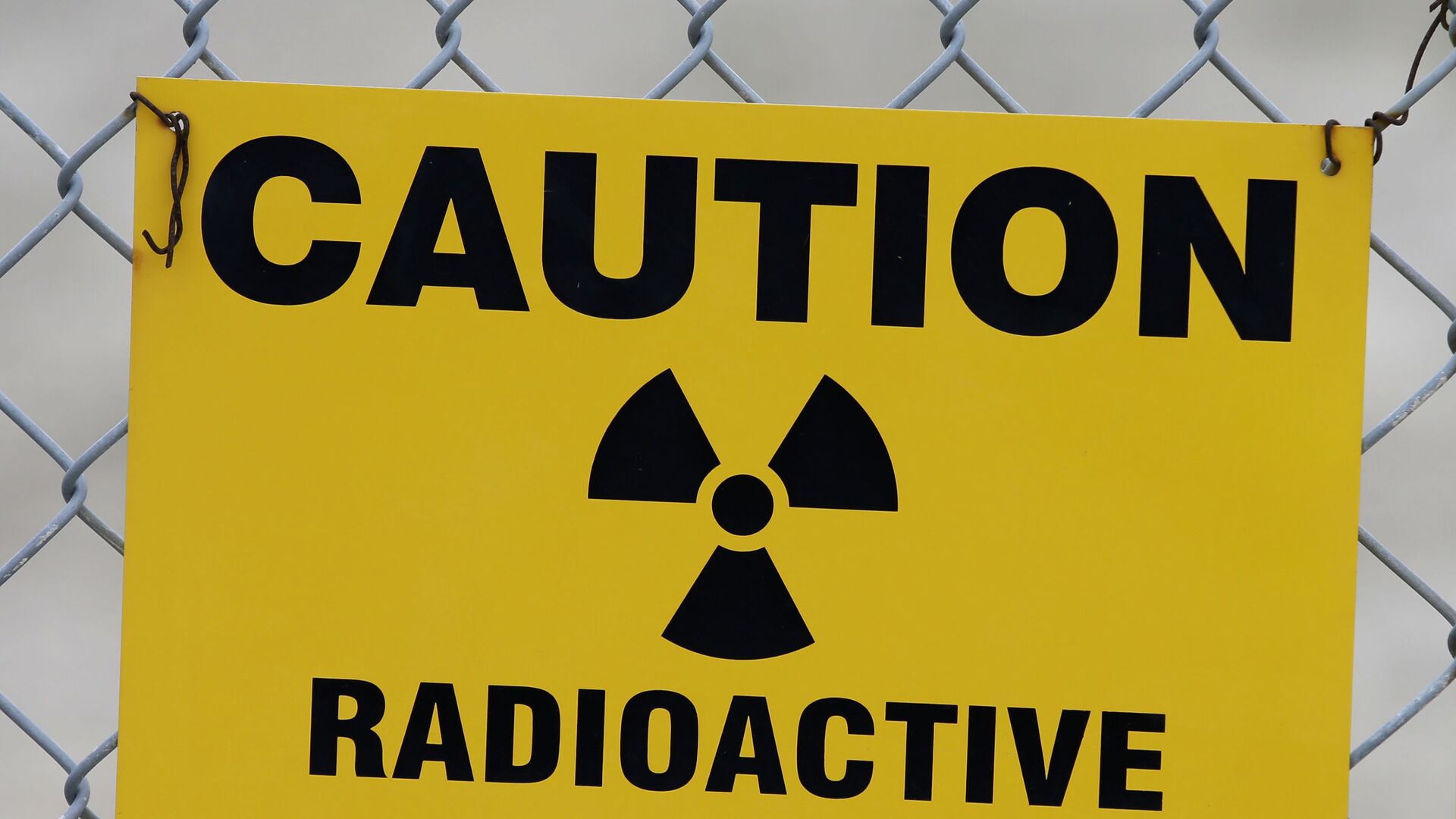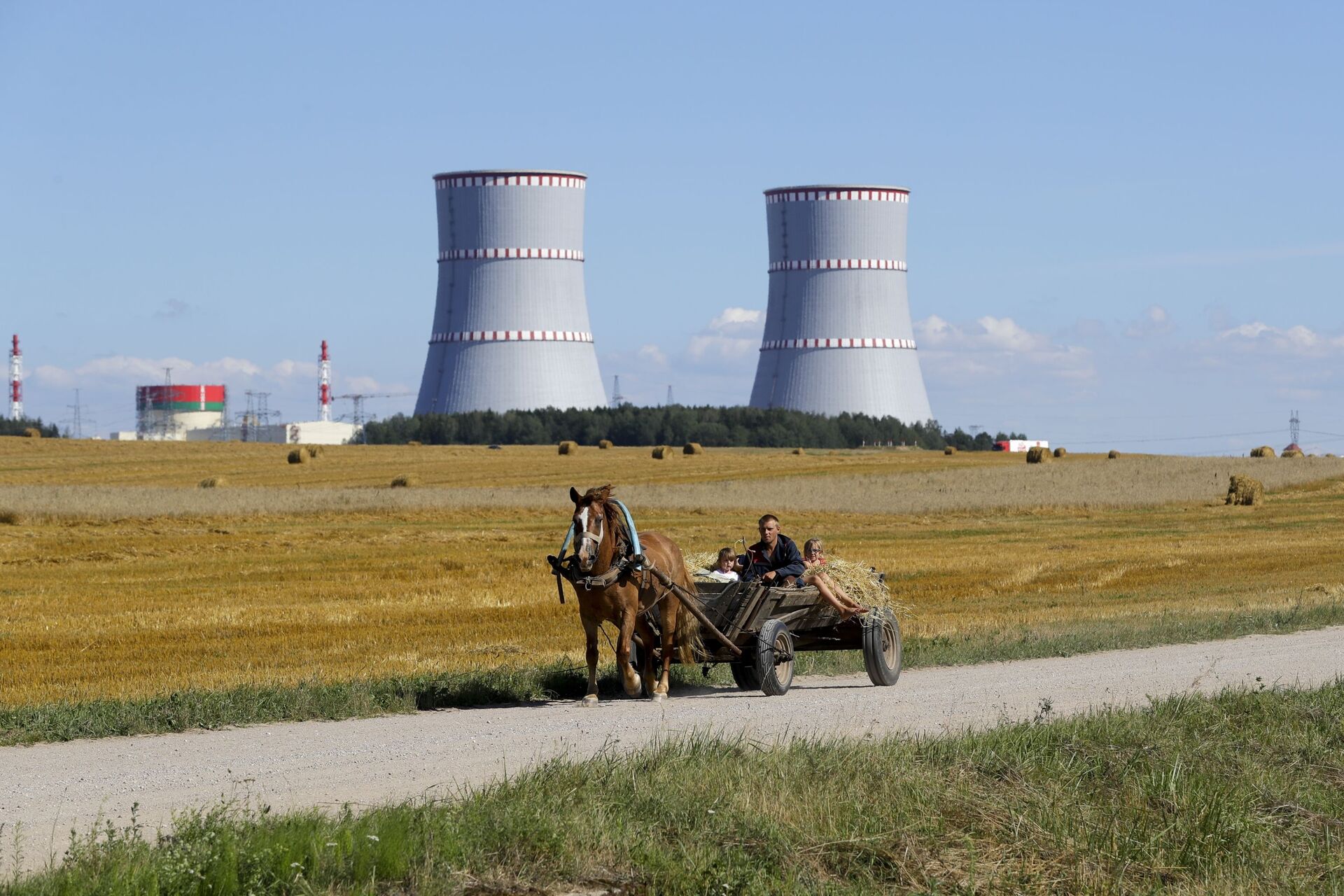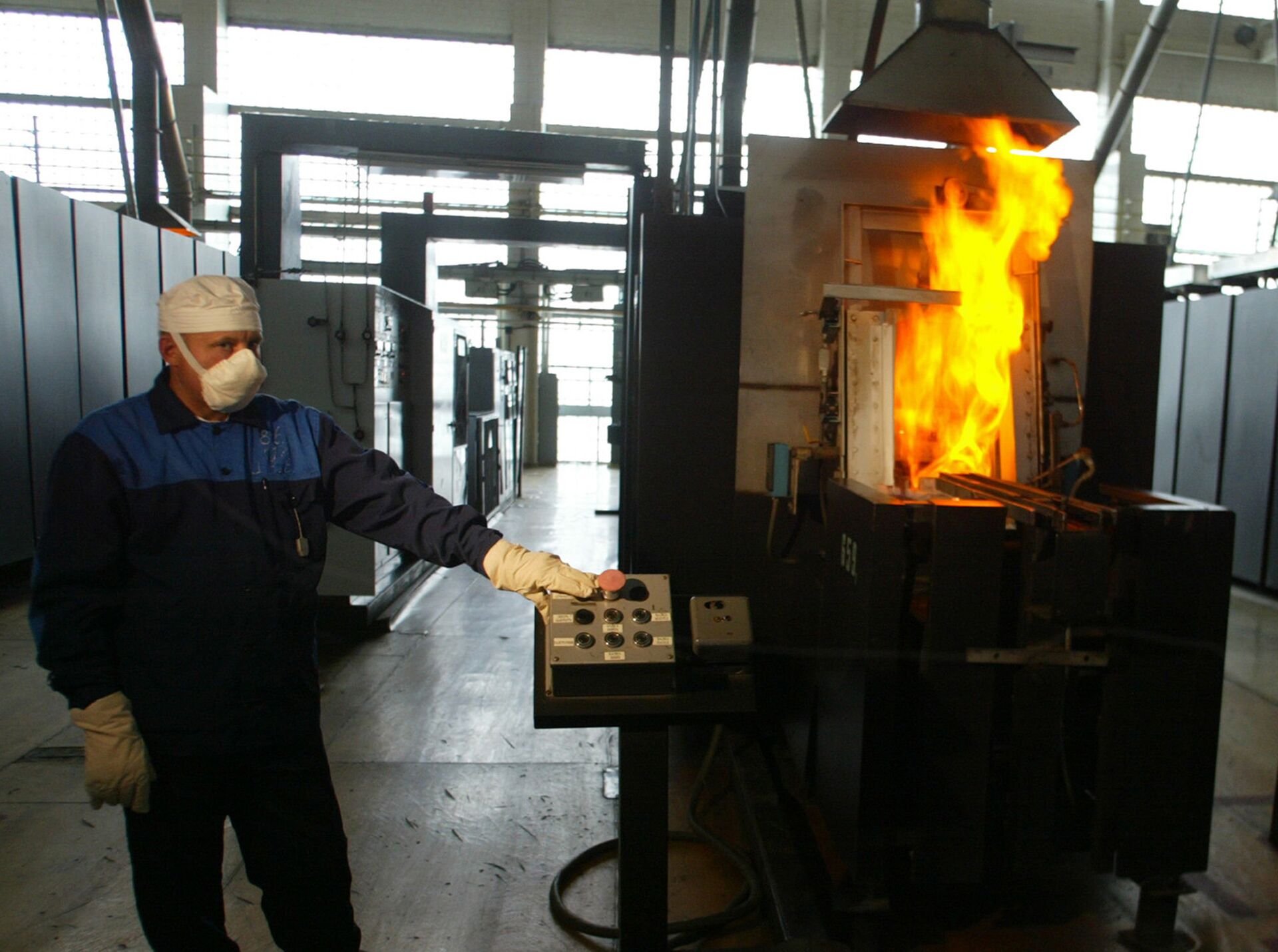https://sputnikglobe.com/20220615/sanctions-on-russian-uranium-sales-likely-to-backfire-on-us-economy-1096326921.html
Sanctions on Russian Uranium Sales Likely to Backfire on US Economy
Sanctions on Russian Uranium Sales Likely to Backfire on US Economy
Sputnik International
WASHINGTON (Sputnik) - Sanctions imposed on Russia’s uranium sales would backfire on the US economy by dramatically boosting nuclear energy generating costs... 15.06.2022, Sputnik International
2022-06-15T08:05+0000
2022-06-15T08:05+0000
2022-06-15T08:05+0000
russia
uranium
nuclear power
us
https://cdn1.img.sputnikglobe.com/img/104597/64/1045976442_0:0:2778:1563_1920x0_80_0_0_d4495173b31f3a9a3e98ec8a0763f4d7.jpg
In March, the US banned the imports of Russian oil and other energy products in retaliation for the military operation in Ukraine. Uranium sales remain exempt from the embargo.Last week, Bloomberg reported that the Biden administration is pressing Congress to fund an ambitious $4.3 billion plan to buy enriched uranium directly from domestic suppliers and wean off Russian supply. The move comes as the US is weighing extending sanctions to enriched uranium from Russia while also considering prospects that Moscow could decide to halt imports, the report noted.However, even if the funding is approved, it will take years to create the industrial infrastructure to process the uranium within the United States. US energy officials informed Congressional staff that any interruption in Russia's supply could lead to operational disruptions at commercial nuclear reactors, the report said.Russian Uranium NeededEurasia Center Vice President Earl Rasmussen agreed with this assessment. He said Russia's uranium processing industry was far more advanced than that of the United States and other Western countries and therefore US nuclear power stations were dependent on Russian-process imports of the nuclear fuel for almost half of their annual needs.Russia also controls almost all of the production of commercially available HALEU (High-Assay Low-Enriched Uranium) Uranium, which is required for many newer nuclear facilities and all of the US advanced nuclear reactors, Rasmussen explained.Therefore, "too a large extent we are significantly dependent on Russia. Most likely not only for fuel but possibly also for technical assistance", he said.Currently the United States relies on nuclear power to provide approximately 20% of its energy, with 16 % of the enriched uranium coming directly from Russia and another 30% from the former Soviet republics of Uzbekistan and Kazakhstan, Rasmussen pointed out.Therefore, Rasmussen, continued, any sanctions on uranium sales are very likely to quickly produce an enormous leap in US energy generating costs very quickly.Sanctions BackfireMarshall Auerback, a market analyst and research associate at the Levy Economics Institute of Bard College, agreed that President Joe Biden's efforts to sanction Russian nuclear fuel exports could disastrously backfire on the United States.Sanctions were also likely to backfire when targeting Russian food and rare metals and rare earths exports, Auerback warned.Kazakh and Uzbek FactorsFormer nuclear physicist Professor Edward Lozansky, now president of the American University in Moscow, said US policymakers appeared not to have anticipated that if Russia's uranium exports were blocked, Uzbekistan and Kazakhstan would support Moscow and cut off their sales of the vital nuclear fuel as well.Lozansky noted that the US atomic power lobby was pressing the White House not to sanction Russia, at least until they found alternative suppliers.Environmentalist ObsessionsFinancial analyst and former merchant banker Martin Hutchinson said the United States and European nations had become far more dependent on Russia and its neighbors to provide the enriched uranium they needed because of fashionable, environmentalist, or "Green" prevailing attitudes and policies over the past 30 and more years.In this area, Western environmentalist mania has been most damaging over the past half century, Hutchinson stated.
Sputnik International
feedback@sputniknews.com
+74956456601
MIA „Rosiya Segodnya“
2022
Sputnik International
feedback@sputniknews.com
+74956456601
MIA „Rosiya Segodnya“
News
en_EN
Sputnik International
feedback@sputniknews.com
+74956456601
MIA „Rosiya Segodnya“
Sputnik International
feedback@sputniknews.com
+74956456601
MIA „Rosiya Segodnya“
uranium, nuclear power, us
uranium, nuclear power, us
Sanctions on Russian Uranium Sales Likely to Backfire on US Economy
WASHINGTON (Sputnik) - Sanctions imposed on Russia’s uranium sales would backfire on the US economy by dramatically boosting nuclear energy generating costs and adding more inflationary pressures to the economy, experts told Sputnik.
In March, the
US banned the imports of Russian oil and other energy products in retaliation for the military operation in Ukraine. Uranium sales remain exempt from the embargo.
Last week, Bloomberg reported that the Biden administration is pressing Congress to fund an ambitious $4.3 billion plan to buy enriched uranium directly from domestic suppliers and wean off Russian supply. The move comes as the US is weighing extending sanctions to enriched uranium from Russia while also considering prospects that Moscow could decide to halt imports, the report noted.
However, even if the funding is approved, it will take years to create the industrial infrastructure to process the uranium within the United States. US energy officials informed Congressional staff that any interruption in Russia's supply could lead to operational disruptions at commercial nuclear reactors, the report said.
Eurasia Center Vice President Earl Rasmussen agreed with this assessment. He said Russia's uranium processing industry was far more advanced than that of the United States and other Western countries and therefore US nuclear power stations were dependent on Russian-process imports of the nuclear fuel for almost half of their annual needs.
"Russia is essentially the leader in Nuclear Energy technology to include Nuclear Power Plant (NPP) construction and operation as well as a primary source for enriched uranium. It controls 40% plus of conversion and 46% of the enrichment of [global] uranium processing needed for NPP operation," he said.
Russia also controls almost all of the production of commercially available HALEU (High-Assay Low-Enriched Uranium) Uranium, which is required for many newer nuclear facilities and all of the US advanced nuclear reactors, Rasmussen explained.
Therefore, "too a large extent we are significantly dependent on Russia. Most likely not only for fuel but possibly also for technical assistance", he said.
Currently the United States relies on nuclear power to provide approximately 20% of its energy, with 16 % of the enriched uranium coming directly from Russia and another 30% from the former Soviet republics of Uzbekistan and Kazakhstan, Rasmussen pointed out.
"Hence, we receive over 46% of our total enriched uranium needs for power generation from Russia and its allies", he said.
Therefore, Rasmussen, continued, any sanctions on uranium sales are very likely to quickly produce an enormous leap in US energy generating costs very quickly.
"Absolutely!!! If you cut off 40-50% of the enriched uranium and nearly 100% of HALEU uranium for advanced reactors that puts a major glitch in the supply chain that likely could not easily be replaced any time soon if ever. [It] looks like another absolutely brilliant policy decision in the works", he said.
Marshall Auerback, a market analyst and research associate at the Levy Economics Institute of Bard College, agreed that President Joe Biden's efforts to sanction Russian nuclear fuel exports could disastrously backfire on the United States.
"This could have a significant impact on the costs of nuclear energy. Russia has the most advanced nuclear power technology (with China a close second) because we in the West basically stopped investing in this technology. So again we have another stupid instance of the sanctions likely to hit the West disproportionately," he said.
Sanctions were also likely to backfire when targeting Russian food and rare metals and rare earths exports, Auerback warned.
"When the largest exporters of those commodities disappear, the rest of the world experiences physical shortages and rising prices. In short, we're cutting our nose to spite our face," he said.
Former nuclear physicist Professor Edward Lozansky, now president of the American University in Moscow, said US policymakers appeared not to have anticipated that if Russia's uranium exports were blocked, Uzbekistan and Kazakhstan would support Moscow and cut off their sales of the vital nuclear fuel as well.
"Russia, Kazakhstan and Uzbekistan count for approximately half of the uranium needed for powering US plants. Taking into account close political and economic ties between these three suppliers, Kazakhstan and Uzbekistan are unlikely to anger Russia by continuing their sales in case Russian uranium is banned," he explained.
Lozansky noted that the US atomic power lobby was pressing the White House not to sanction Russia, at least until they found alternative suppliers.
Environmentalist Obsessions
Financial analyst and former merchant banker Martin Hutchinson said the United States and European nations had become far more dependent on Russia and its neighbors to provide the enriched uranium they needed because of fashionable, environmentalist, or "Green" prevailing attitudes and policies over the past 30 and more years.
"Nobody has built reactors since 1990 ... The real need is to get rid of all the environmentalists and lawyers so they can open new nuclear plants -- as in most things, the left are a far bigger drag on US/Western capabilities than anything Russia can do," he said.
In this area, Western environmentalist mania has been most damaging over the past half century, Hutchinson stated.






